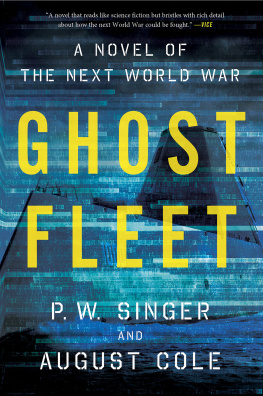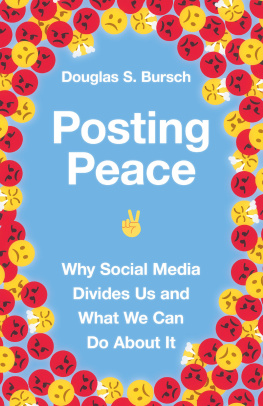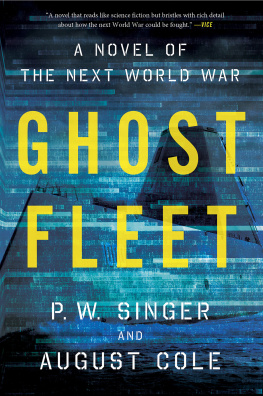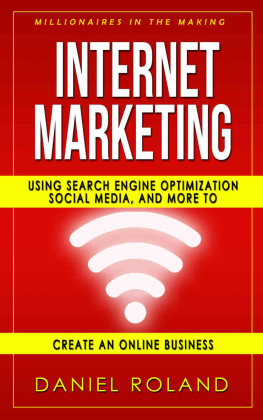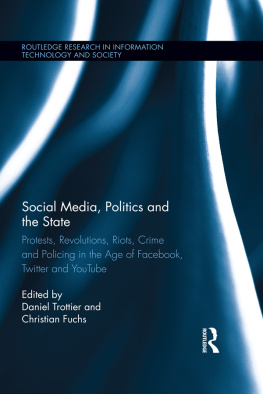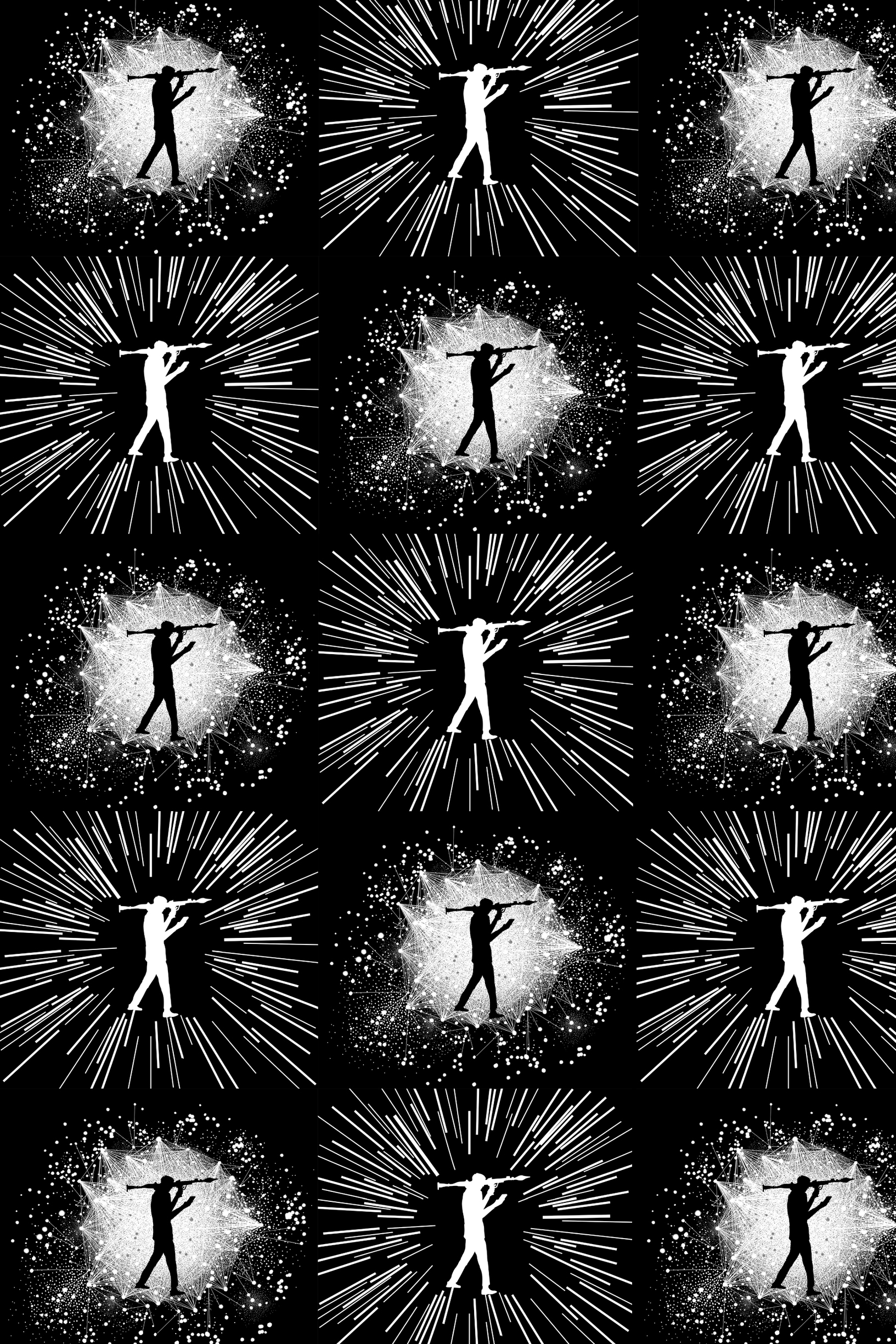Copyright 2018 by P. W. Singer and Emerson T. Brooking
All rights reserved
For information about permission to reproduce selections from this book, write to or to Permissions, Houghton Mifflin Harcourt Publishing Company, 3 Park Avenue, 19th Floor, New York, New York 10016.
hmhco.com
Library of Congress Cataloging-in-Publication Data is available.
ISBN 978-1-328-69574-1
e ISBN 978-1-328-69575-8
v2.1018
Cover design by Mark R. Robinson
Cover images Shutterstock
Singer photograph Sam Cole
Brooking photograph Tim Coburn
is from the film Sneakers, directed by Phil Alden Robinson. Universal Pictures, 1992. Used by permission of Walter F. Parkes.
Endpaper illustration copyright by Doan Trang
It sounds a dreadful thing to say, but these are things that dont necessarily need to be true as long as theyre believed.
ALEXANDER NIX
1
The War Begins
An Introduction to LikeWar
It was an extraordinary life that we were livingan extraordinary way to be at war, if you could call it war.
GEORGE ORWELL , Homage to Catalonia
THE OPENING SHOT OF THE WAR was fired on May 4, 2009. By all appearances, it had nothing to do with war.
Be sure to tune in and watch Donald Trump on Late Night with David Letterman as he presents the Top Ten List tonight!
When @realDonaldTrump blasted his first bland tweet into the ether, there was little to distinguish the account from the horde of other brands, corporations, and celebrities who had also joined social media. This constellation of emerging internet services, where users could create and share their own content across a network of self-selected contacts, was a place for lighthearted banter and personal connections, for oversharing and pontification, for humblebrags and advertising. That the inveterate salesman Donald John Trump would turn to it was not surprising.
Yet beneath the inanity, Twitter, Facebook, YouTube, and the like were hurtling toward a crossroadsone that would soon see them thrust into the center of civic life and global politics. Just a few years earlier, Twitter had begun as a way for groups of friends to share their status via text message updates. Now with 18 million users spread around the world, the startup was on the brink of a revolutionary success. But it would be driven by a different celebrity. A few weeks after Trumps first tweet, superstar entertainer Michael Jackson died. His passing convulsed the internet in grief. Pop musics irreplaceable loss, however, proved Twitters gain. Millions of people turned to the social network to mourn, reflect, and speculate. The platforms traffic surged to a record 100,000 tweets per hour before its servers crashed. People were using social media for something new, to experience the news together online.
Trump was also at a crossroads. The 63-year-old real estate magnate had just suffered his fourth bankruptcy when Trump Entertainment Resorts (the holding company for his casinos, hotels, and Trump Marina) collapsed under a $1.2 billion debt and banished him from the executive board. Although he had successfully rebranded himself as a reality-television host, that shine was starting to wear off. The Apprentice had fallen from its early prime-time heights to the 75th most watched show before being put on hiatus. The celebrity spin-off that Trump was promoting was still on the air, but its ratings were plummeting. His appearance on Letterman was an attempt to stanch the bleeding. It wouldnt work. In The Celebrity Apprentices season finale, just six days after Trumps first tweet, more Americans would elect to watch Desperate Housewives and Cold Case.
But beneath his shock-blond dome, Trumps showmans brain was already moving on to the Next Big Thing.
The transformation played out slowly, at least for the internet. Trumps initial online messaging was sporadic, coming once every few days. In the first years of life, @realDonaldTrump was obviously penned by Trumps staff, much of it written in the third person. The feed was mostly announcements of upcoming TV appearances, marketing pitches for Trump-branded products like vitamins and key chains, and uninspired inspiring quotes (Dont be afraid of being uniqueits like being afraid of your best self).
But in 2011, something changed. The volume of Trumps Twitter messages quintupled; the next year, it quintupled again. More were written in the first person, and, most important, their tone shifted. This @realDonaldTrump was real. The account was also real combative, picking online fights regularlycomedian Rosie ODonnell was a favorite punching bagand sharpening the language that would become Trumps mainstay. His use of Sad!, Loser!, Weak!, and Dumb! soon reached into the hundreds of occurrences. Back then, it still seemed novel and a little unseemly for a prominent businessman to barrel into online feuds like an angst-ridden teenager. But Trumps flame wars succeeded at what mattered most: drawing attention.
As the feed became more personal, it became more political. Trump issued screeds about trade, China, Iran, and even Kwanzaa. And he turned President Barack Obama, whom hed praised as a champion just a few years earlier, into the most prominent of his celebrity targets, launching hundreds of bombastic attacks. Soon the real estate developer turned playboy turned reality show entertainer transformed again, this time into a right-wing political power. Here was a voice with the audacity to say what needed to be said, all the better if it was politically incorrect. Not coincidentally, Trump began to use the feed to flirt with running for office, directing his Twitter followers to a new website (created by his lawyer Michael Cohen). ShouldTrumpRun.com, it asked.
The technology gave Trump immediate feedback, both validation that he was onto something and a kind of instant focus-testing that helped him hone and double down on any particularly resonant messages. Resurrecting an old internet conspiracy, Trump attacked not just Obamas policies but his very eligibility to serve. (Lets take a closer look at that birth certificate.) The online reaction spiked. Together, Trump and Twitter were steering politics into uncharted territory.
Through social media, Trump was both learning how the game was played online and creating new rules for politics beyond it. All those over-the-top tweets didnt just win fans. They also stoked an endless cycle of attention and outrage that both kept Trump in the spotlight and literally made him crave more and more.
The engineers behind social media had specifically designed their platforms to be addictive. The brain fires off tiny bursts of dopamine as a user posts a message and it receives reactions from others, trapping the brain in a cycle of posts, likes, retweets, and shares. Like so many of us, Donald Trump became hooked on social media. In the three years that followed, he would personally author some 15,000 tweets, famously at all hours of the day and night.
Exactly 2,819 days after his first tweet, @realDonaldTrump would broadcast a vastly different announcement to an incomprehensibly different world. It was a world in which nine-tenths of Americans now had social media accounts and Twitter alone boasted 300 million active users. It was a world shaped by online virality and alternative facts. And it was one in which the same account that had once informed hundreds of readers that everybody is raving about Trump Home Mattress now proclaimed to hundreds of millions, I am honered [

